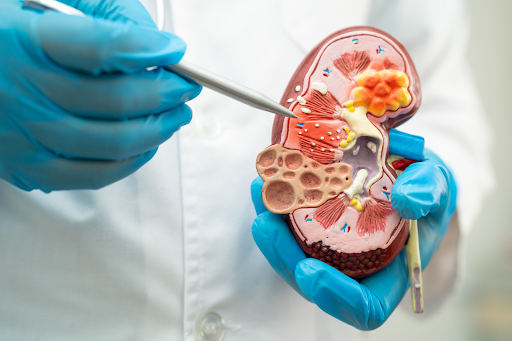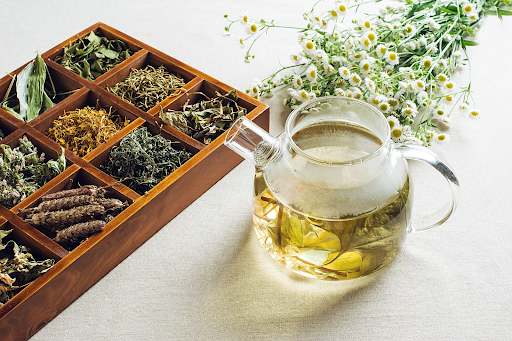Imagine this: a child struggles with both learning delays and a constant, maddening ringing in their ears. It seems like two completely unrelated issues, right? Dr. C. George Boeree, a renowned developmental psychologist, might surprise you.
He points out a fascinating fact: A child with one developmental problem may have other issues that arise simultaneously. Kidney problems and hearing problems, for example, are often found together because both kidneys and the inner ears develop at the same time.
This connection isn’t confined to childhood.
For adults troubled by tinnitus—the constant ringing that can disrupt daily life—the underlying issue might be surprisingly linked to kidney health. This insight invites us to reconsider how interconnected our body’s systems truly are, from development through adulthood.
It may seem unconventional, but the relationship between your kidneys and ears is closer than you imagine.
Traditional Chinese Medicine (TCM) has long understood this connection. TCM teaches that the kidneys “open into the ears,” indicating that the health of your kidneys can directly affect your hearing.
In this holistic tradition, the kidneys are more than mere organs of fluid balance—they’re seen as the ocean of the body, essential for storing and releasing ‘Jing,’ a vital essence that fuels life. They serve as the core of Yin and Yang for all other organs, crucial in managing water metabolism and maintaining systemic balance.
Deep Dive: How Kidneys and the Inner Ear Mirror Each Other
Functional and Structural Similarities
The cochlea in the inner ear and the kidneys both deal with fluids that are rich in calcium, sodium, and potassium—elements crucial for their operation. The similarity in handling these fluids can explain why damage to one can affect the other.
CKD and Ear Health
Chronic Kidney Disease (CKD) can lead to sensorineural hearing loss and increase the risk of tinnitus. Toxins that the damaged kidneys fail to filter effectively can harm auditory nerves and pathways. Treatments for CKD-related health issues, like loop diuretics, are known to have ototoxic effects that can further compromise hearing.

From an emotional point of view, will, determination, and the power of memory are attributed to the kidneys. When your kidney jing becomes depleted or exhausted, you will feel weak-willed and experience the symptoms of poor memory.
If you experience intense or prolonged fear, that emotional energy will cause injury to your kidney energy, and similarly, a physical kidney issue or disfunction can cause fearful and panicky behavior.
Your kidney governs your body’s bones and marrow, ears and sense of hearing, as well as the hair on your head. The kidneys open into the ears and lower orifices, so it makes sense that anyone with ear issues, tinnitus, hearing problems, and urinary tract issues might have a kidney weakness.
Physiologically your kidneys do the following:
- Regulate the amount of fluid in your body.
- Help to control blood pressure.
- Balance the composition of your blood.
- Balance the electrolytes in your blood.
- Perform the complex process of urine formation, involving filtration of waste and toxins from the blood, retaining essential molecules and balancing key hormones in the blood.
Many people accumulate some form of toxic buildup and lose kidney function as time passes, but the good news is that there are things you can do to keep your kidneys really functioning well.
If you experience tinnitus or some form of ear dysfunction, consider the following advice for great kidney health:
Optimal Hydration
Maintaining hydration helps the kidneys filter waste more efficiently and maintains essential fluid balance, which can indirectly help manage tinnitus by improving overall bodily functions. Aim for a light yellow color in your urine as a sign of proper hydration.
Low Sodium, High Potassium Diet
Reducing sodium intake can prevent high blood pressure, a known risk factor for kidney strain and tinnitus. Foods rich in potassium, such as bananas, sweet potatoes, and spinach, help regulate kidney function and maintain electrolyte balance.
Alkaline Diet
Eating more raw fruits and vegetables helps create an alkaline environment in the body, supporting kidney health and reducing the risk of kidney stone formation.
Supportive Herbal Tea
Add herbal teas to your diet, especially Chanca Piedra. This tea helps to kill infections, stimulates renal tissue, and even breaks down kidney stones.

He Shou Wu
Add He Shou Wu to your diet. This is a herb with the ability to tonify the kidneys and the blood, calm down the nervous system, and maintain strength of your lower back. It’s also a wonderful source of iron, can prevent premature greying hair, and has an enormous accumulation of Qi in its root.
Dark-Colored Food
Incorporate black sesame seeds, black beans, and dark grapes, which are high in antioxidants and beneficial nutrients that support kidney health.
Kidney Function Tests
Regular check-ups with blood tests can monitor kidney function and catch any deterioration early, allowing for timely interventions that can also mitigate related health issues like tinnitus.
By focusing on enhancing kidney health through diet, hydration, herbal supplements, and lifestyle changes, individuals with tinnitus can experience relief not just from ringing in the ears but also from other symptoms associated with kidney dysfunction. This holistic approach underscores how interconnected our bodily systems are and how enhancing one aspect of our health can beneficially influence others.

Ready to give your kidneys the care they deserve?
Download our “Kidney Detox Drinks: Essential Beverages to Cleanse and Revitalize Your Kidneys” guidebook today and start sipping your way to better health!
Discover the best drinks that help flush toxins, boost kidney function, and enhance overall wellness. Don’t miss out on the secrets to a healthier, happier you—grab your free copy now and transform your hydration habits for good!
Related News

5 Anti-Inflammatory Habits Your Brain Will Thank You For (Plus One to Eat More Of)
Ever feel like your brain is wrapped in cotton wool? Struggling to focus, remember names, or string thoughts together? It’s not just stress or screen time overload. it could be indicating inflammation of the brain

A Berry that Improves your Memory in Minutes?
Did you realize that what you eat today has an impact on your whole body, including your brain, AND it can happen in just minutes?


